Shows
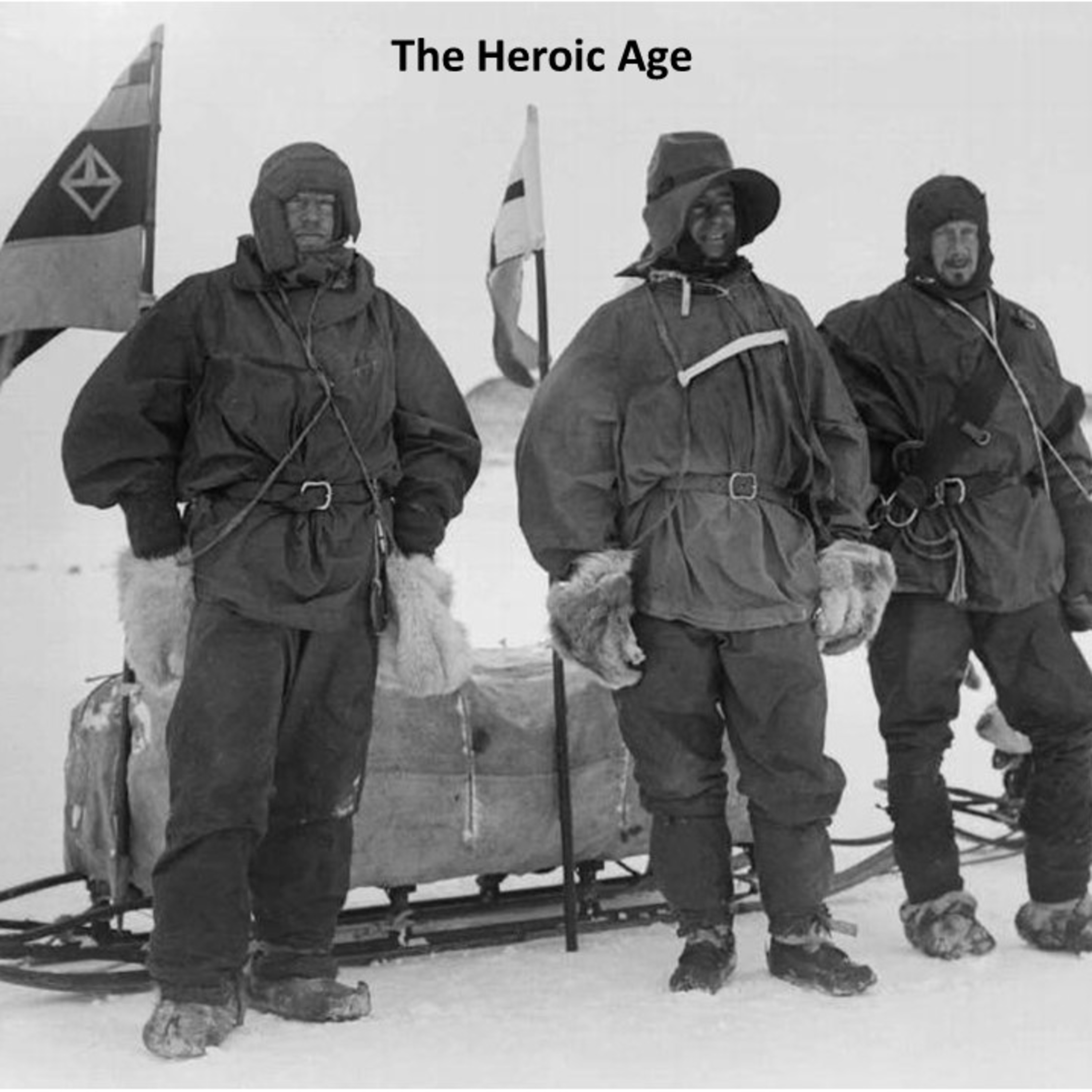 All about AntarcticaPart XII The Heroic AgeThe Heroic Age in Antarctica dates from 1899-1922 when the first men to winter over and conduct scientific research and exploration endured many hardships with some deaths. Besides providing the first scientific studies, photography and even poetry emerged from this period. It also can be defined by the isolation of the men involved, with no outside contact or chance of rescue if things went wrong. Here, I review some of these early expeditions including the first winter over in sea ice with the ship Beligica from Belgium, the first winter over on the continent by Carsten Borchgrevink, and the fi...2023-03-1212 min
All about AntarcticaPart XII The Heroic AgeThe Heroic Age in Antarctica dates from 1899-1922 when the first men to winter over and conduct scientific research and exploration endured many hardships with some deaths. Besides providing the first scientific studies, photography and even poetry emerged from this period. It also can be defined by the isolation of the men involved, with no outside contact or chance of rescue if things went wrong. Here, I review some of these early expeditions including the first winter over in sea ice with the ship Beligica from Belgium, the first winter over on the continent by Carsten Borchgrevink, and the fi...2023-03-1212 min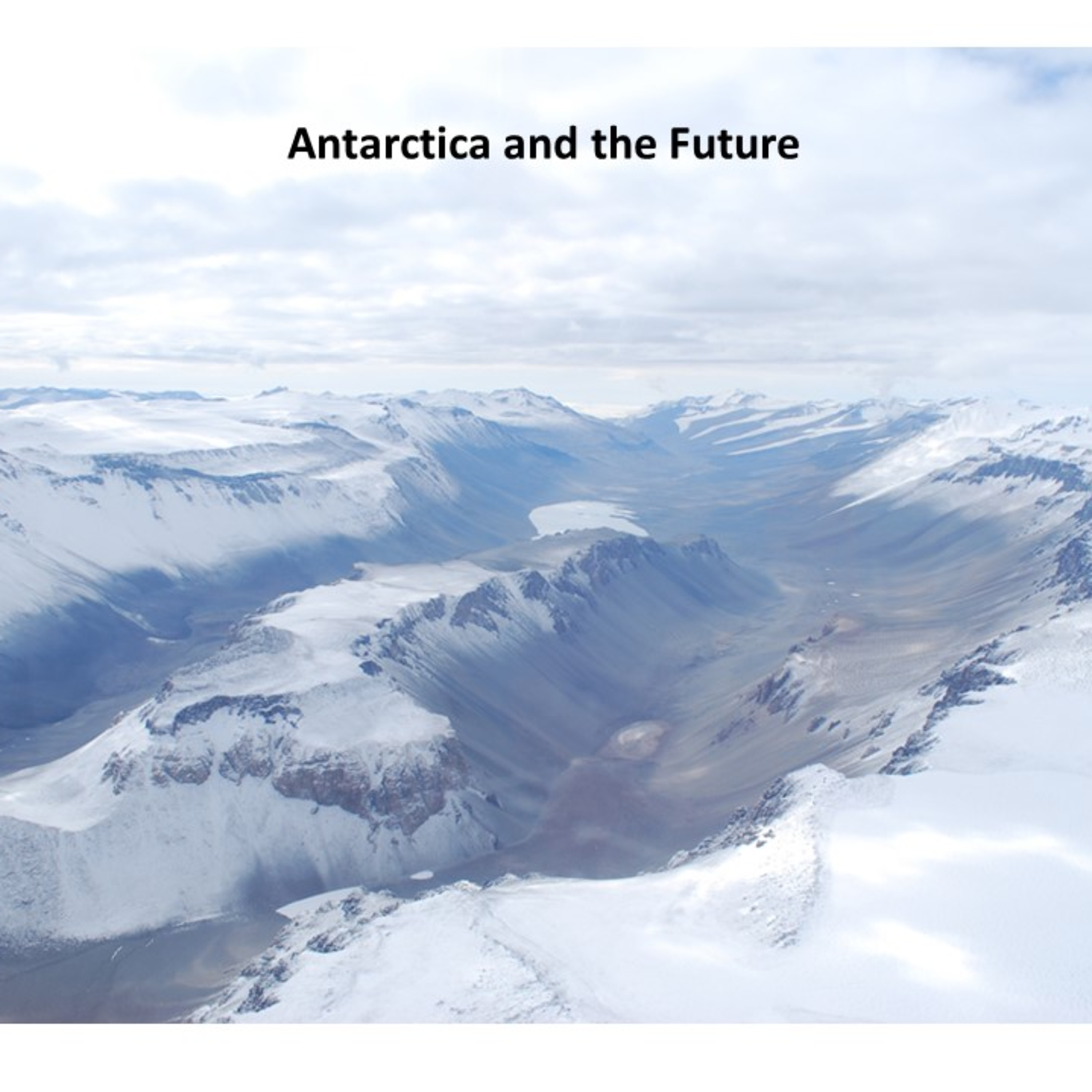 All about AntarcticaPart XIX Antarctica and the FutureThroughout this podcast, we have traced the history of Antarctica from its geologic origins, its earliest discovery and the first people to set foot there, to the first research stations and into the modern world. Even though Antarctica has been impacted throughout the past 120 years from research stations, tourism, and external anthropogenic factors such as climate change and pollution, it still remains the most remote and pristine place on earth, an extreme environment so relatively few people visit it. In this final episode, I go over the greatest threats facing Antarctica today, including global warming and sea level rise...2023-03-1105 min
All about AntarcticaPart XIX Antarctica and the FutureThroughout this podcast, we have traced the history of Antarctica from its geologic origins, its earliest discovery and the first people to set foot there, to the first research stations and into the modern world. Even though Antarctica has been impacted throughout the past 120 years from research stations, tourism, and external anthropogenic factors such as climate change and pollution, it still remains the most remote and pristine place on earth, an extreme environment so relatively few people visit it. In this final episode, I go over the greatest threats facing Antarctica today, including global warming and sea level rise...2023-03-1105 min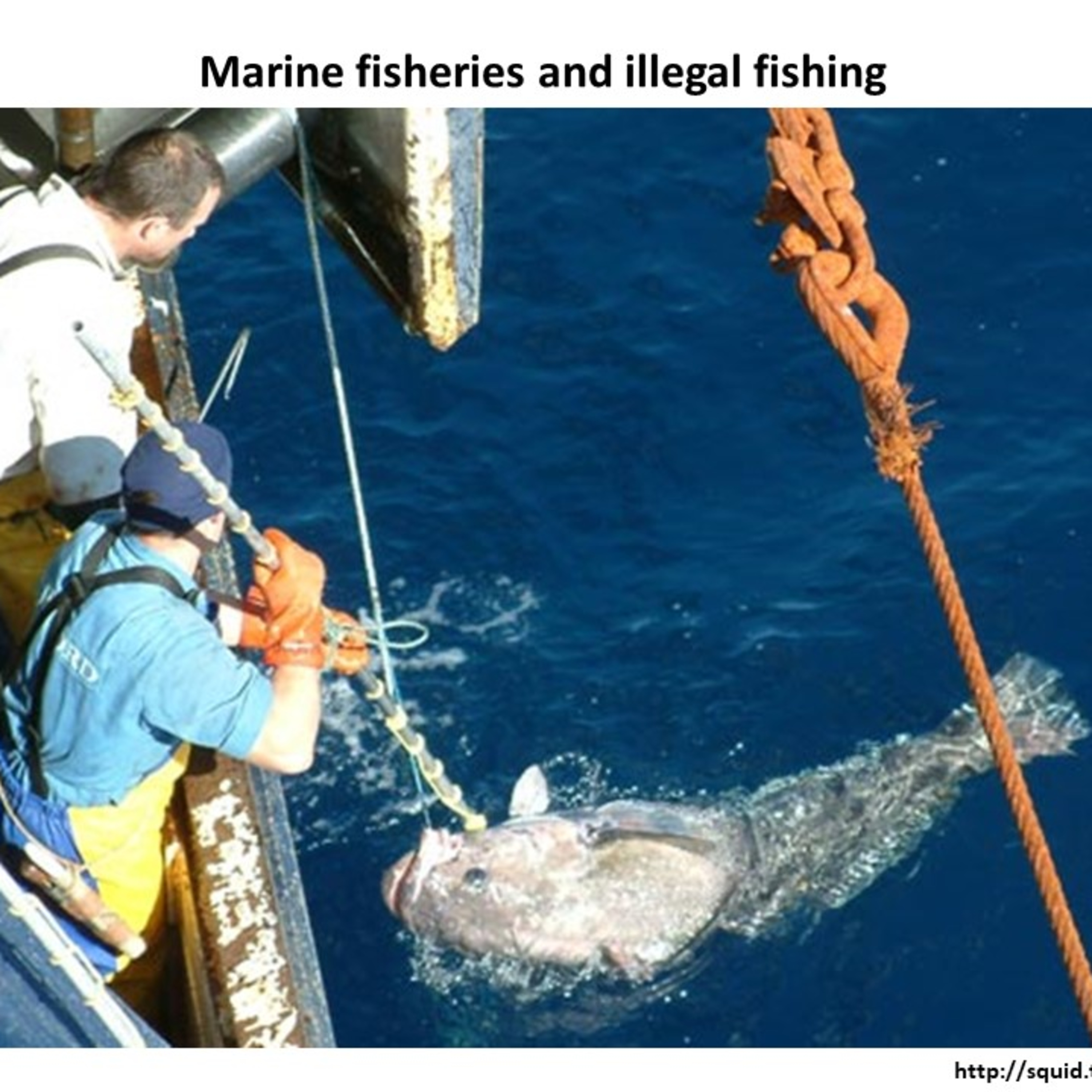 All about AntarcticaPart XVIII Marine Fisheries and Illegal FishingFisheries for fin fish and krill began to increase in Antarctica in the late 1960s and 1970s and by 1982 the krill catch rose to a peak of over 520,000 tons removed. This increased harvest caused concern among scientists in Antarctic Treaty nations that fish and krill stocks would be depleted beyond recovery unless steps were taken to manage these fisheries. Here I discuss measures taken to avoid the loss of critical and keystone marine species in Antarctica with the addition of the Convention for the Conservation of Antarctic Living Marine Resources, or CCAMLR, to the Antarctic Treaty in 1980. This agreement...2023-03-1107 min
All about AntarcticaPart XVIII Marine Fisheries and Illegal FishingFisheries for fin fish and krill began to increase in Antarctica in the late 1960s and 1970s and by 1982 the krill catch rose to a peak of over 520,000 tons removed. This increased harvest caused concern among scientists in Antarctic Treaty nations that fish and krill stocks would be depleted beyond recovery unless steps were taken to manage these fisheries. Here I discuss measures taken to avoid the loss of critical and keystone marine species in Antarctica with the addition of the Convention for the Conservation of Antarctic Living Marine Resources, or CCAMLR, to the Antarctic Treaty in 1980. This agreement...2023-03-1107 min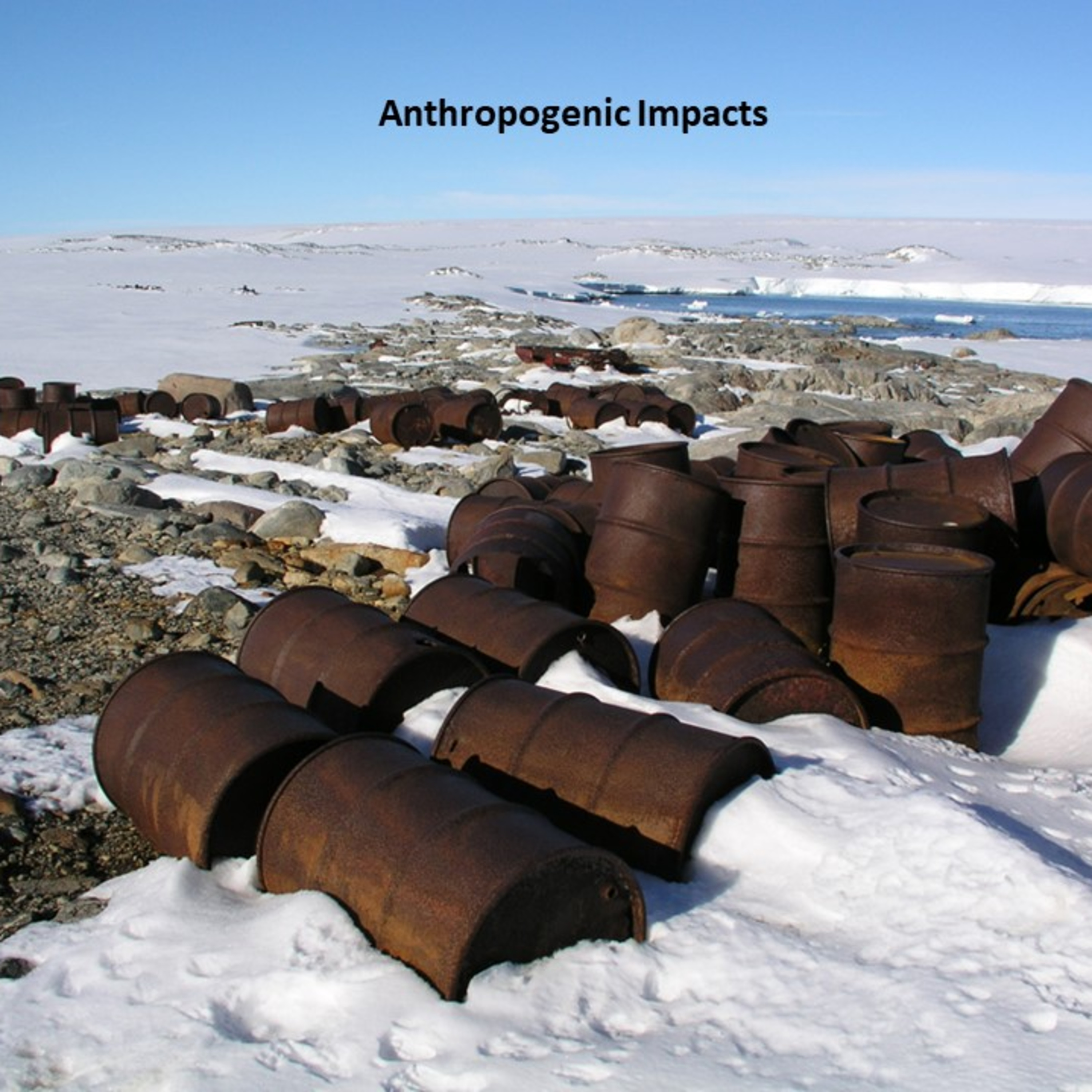 All about AntarcticaPart XVII Anthropogenic ImpactsAlthough Antarctica is still the most remote and pristine place on earth, there have been many human-caused impacts to this continent and the marine environment around it. These impacts include pollution from research stations, tourism, and introduced species. In this podcast, I discuss these impacts and how they led to the Environmental Protocol in the Antarctic Treaty in 1991. In addition, I give the history of tourism and when the first women are known to have visited the frozen continent. Tourism (ship and air), which has been increasing exponentially since the 1970s, is now controlled by the tourist agencies themselves wh...2023-03-1109 min
All about AntarcticaPart XVII Anthropogenic ImpactsAlthough Antarctica is still the most remote and pristine place on earth, there have been many human-caused impacts to this continent and the marine environment around it. These impacts include pollution from research stations, tourism, and introduced species. In this podcast, I discuss these impacts and how they led to the Environmental Protocol in the Antarctic Treaty in 1991. In addition, I give the history of tourism and when the first women are known to have visited the frozen continent. Tourism (ship and air), which has been increasing exponentially since the 1970s, is now controlled by the tourist agencies themselves wh...2023-03-1109 min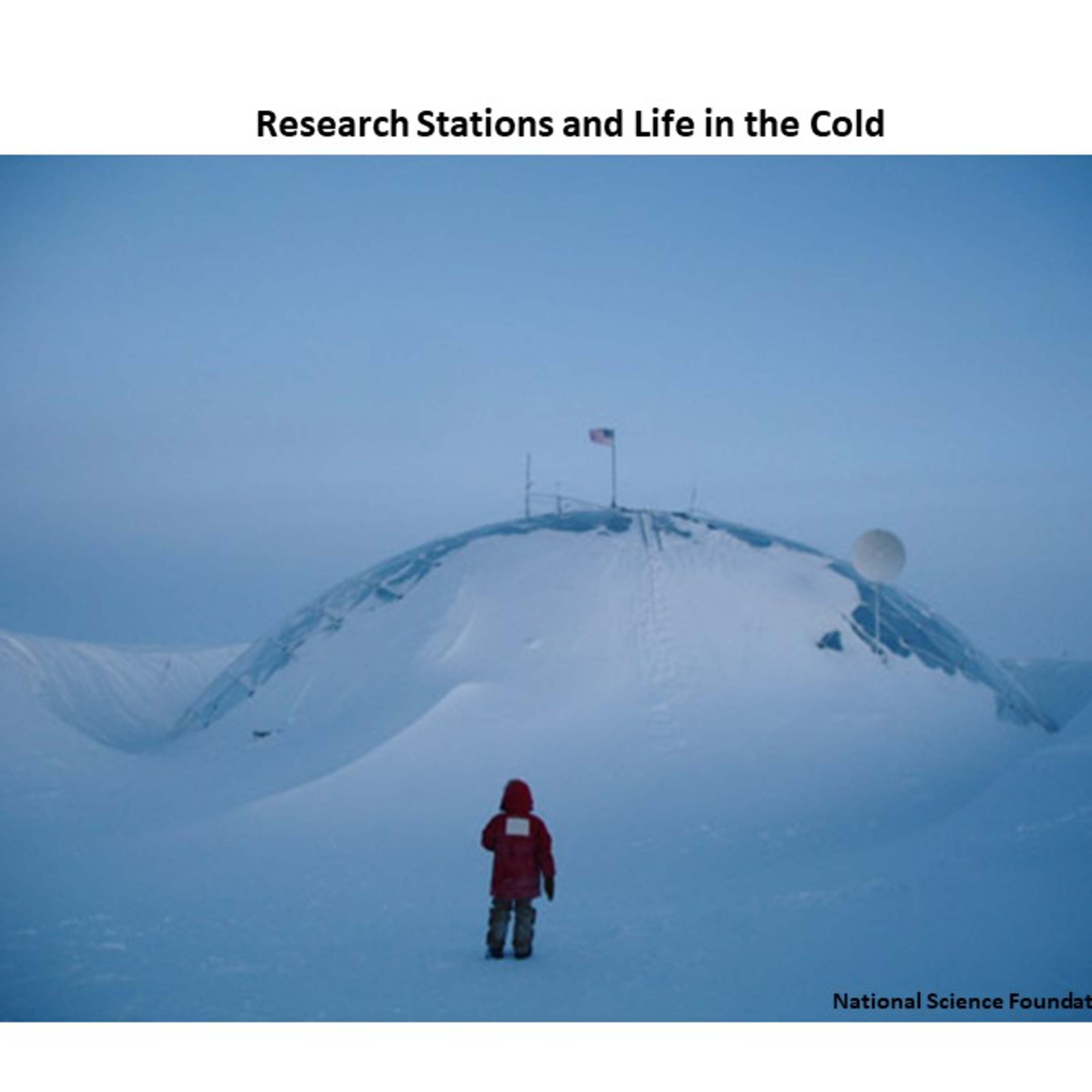 All about AntarcticaPart XVI Research Stations and Life in the ColdResearch stations in Antarctica must overcome three obstacles: logistics for how to build and maintain them, climate control for comfortable temperatures, and comfort in general for the personnel including space to spread out, quality of food, health and safety, and some leisure time. In this podcast I describe how the first stone and wood huts in the Antarctic used for science and exploration only partially solved these problems and how modern research stations and their designs evolved and developed to the stations we have today. I also discuss some of the constraints and mental fatigue that personnel face when l...2023-03-1111 min
All about AntarcticaPart XVI Research Stations and Life in the ColdResearch stations in Antarctica must overcome three obstacles: logistics for how to build and maintain them, climate control for comfortable temperatures, and comfort in general for the personnel including space to spread out, quality of food, health and safety, and some leisure time. In this podcast I describe how the first stone and wood huts in the Antarctic used for science and exploration only partially solved these problems and how modern research stations and their designs evolved and developed to the stations we have today. I also discuss some of the constraints and mental fatigue that personnel face when l...2023-03-1111 min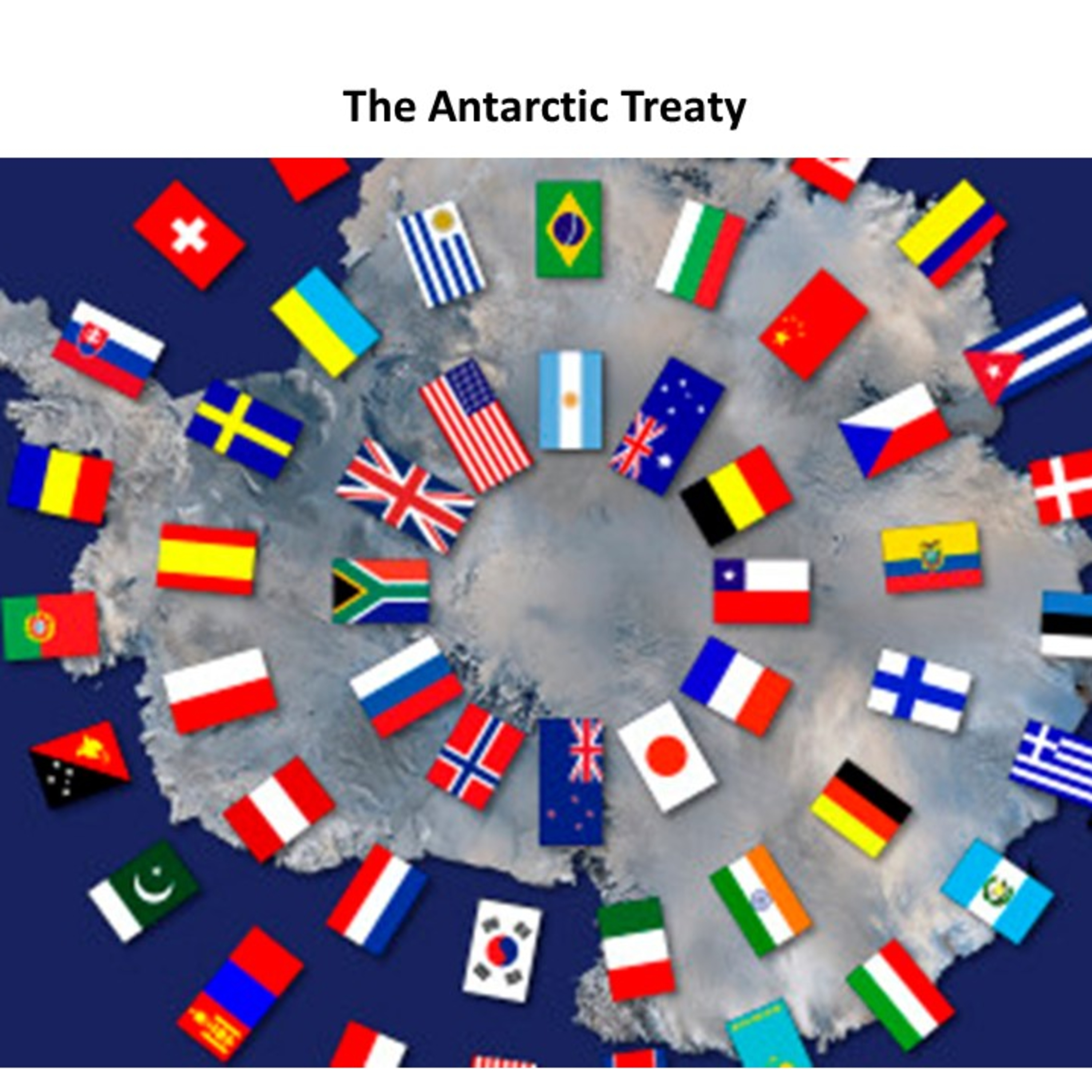 All about AntarcticaPart XV The Antarctic TreatyAfter the International Geophysical Year of 1957-1958, Antarctica became a focus of scientific research that continues to this day. In 1958, most of Antarctica was under territorial claims by seven nations, with overlapping claims between Britain, Chile, and Argentina leading to conflicts. The U.S. President at the time, Dwight D. Eisenhower, called for claimant nations to hold a series of meetings and work out an agreement so that Antarctica could remain for 'peaceful purposes only'. These meetings led to the Antarctic Treaty of 1959, one of the most successful international treaties every signed. In this podcast I describe events leading u...2023-03-1110 min
All about AntarcticaPart XV The Antarctic TreatyAfter the International Geophysical Year of 1957-1958, Antarctica became a focus of scientific research that continues to this day. In 1958, most of Antarctica was under territorial claims by seven nations, with overlapping claims between Britain, Chile, and Argentina leading to conflicts. The U.S. President at the time, Dwight D. Eisenhower, called for claimant nations to hold a series of meetings and work out an agreement so that Antarctica could remain for 'peaceful purposes only'. These meetings led to the Antarctic Treaty of 1959, one of the most successful international treaties every signed. In this podcast I describe events leading u...2023-03-1110 min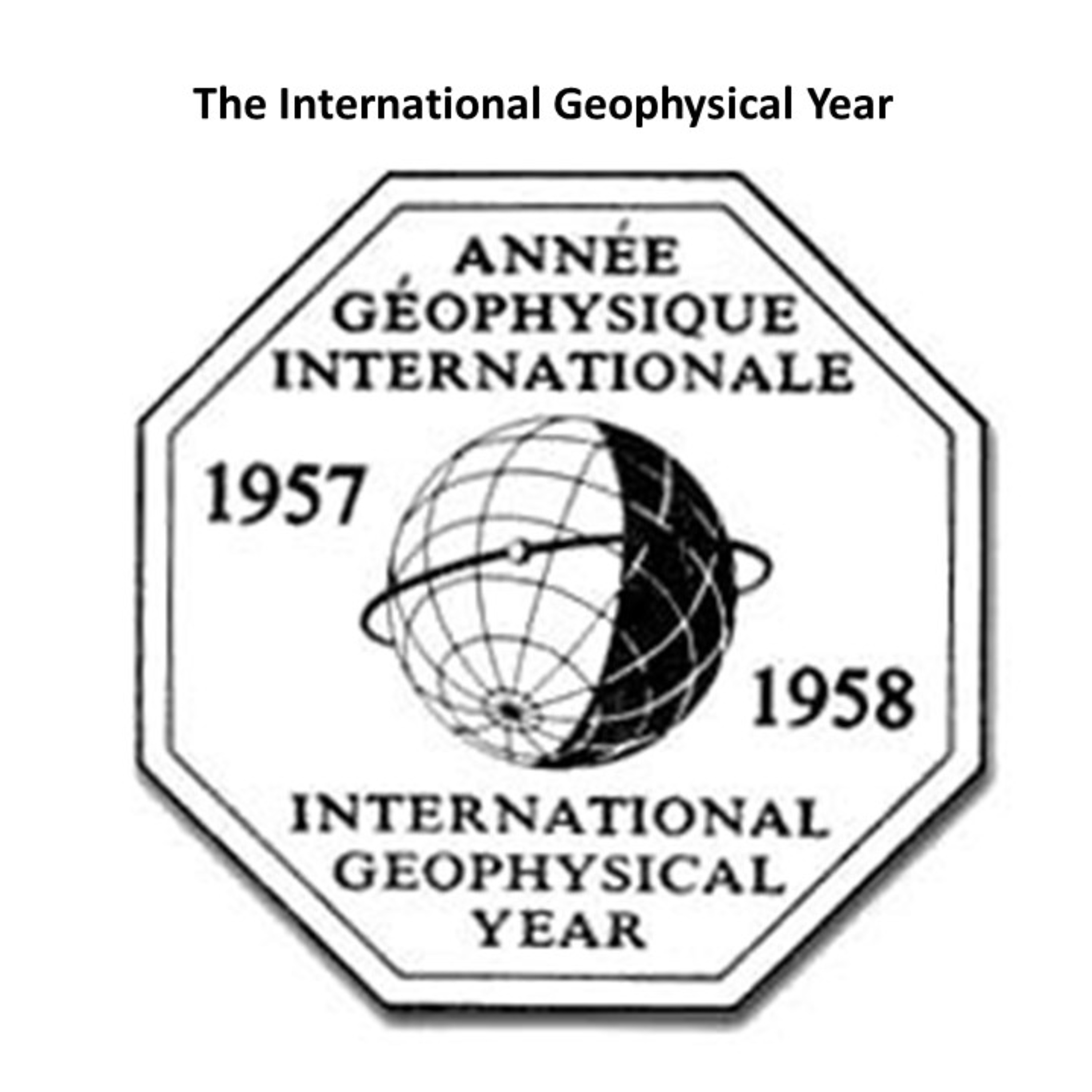 All about AntarcticaPart XIV The International Geophysical YearFollowing Shackleton’s death in 1922 which marked the end of the Heroic Age in Antarctic history, no major expedition occurred to Antarctica until 1928 when a naval aviator, Richard Byrd, ventured south with ambitions to be the first person to fly over the south pole. In this podcast, I provide the history of Byrd's expedition and his research station Little America on the Ross Ice Shelf. In addition, I discuss the territorial claims that were being made for parts of the Antarctic continent by that time and the events leading up to the International Geophysical Year of 1957-1958 when Antarctica be...2023-03-1110 min
All about AntarcticaPart XIV The International Geophysical YearFollowing Shackleton’s death in 1922 which marked the end of the Heroic Age in Antarctic history, no major expedition occurred to Antarctica until 1928 when a naval aviator, Richard Byrd, ventured south with ambitions to be the first person to fly over the south pole. In this podcast, I provide the history of Byrd's expedition and his research station Little America on the Ross Ice Shelf. In addition, I discuss the territorial claims that were being made for parts of the Antarctic continent by that time and the events leading up to the International Geophysical Year of 1957-1958 when Antarctica be...2023-03-1110 min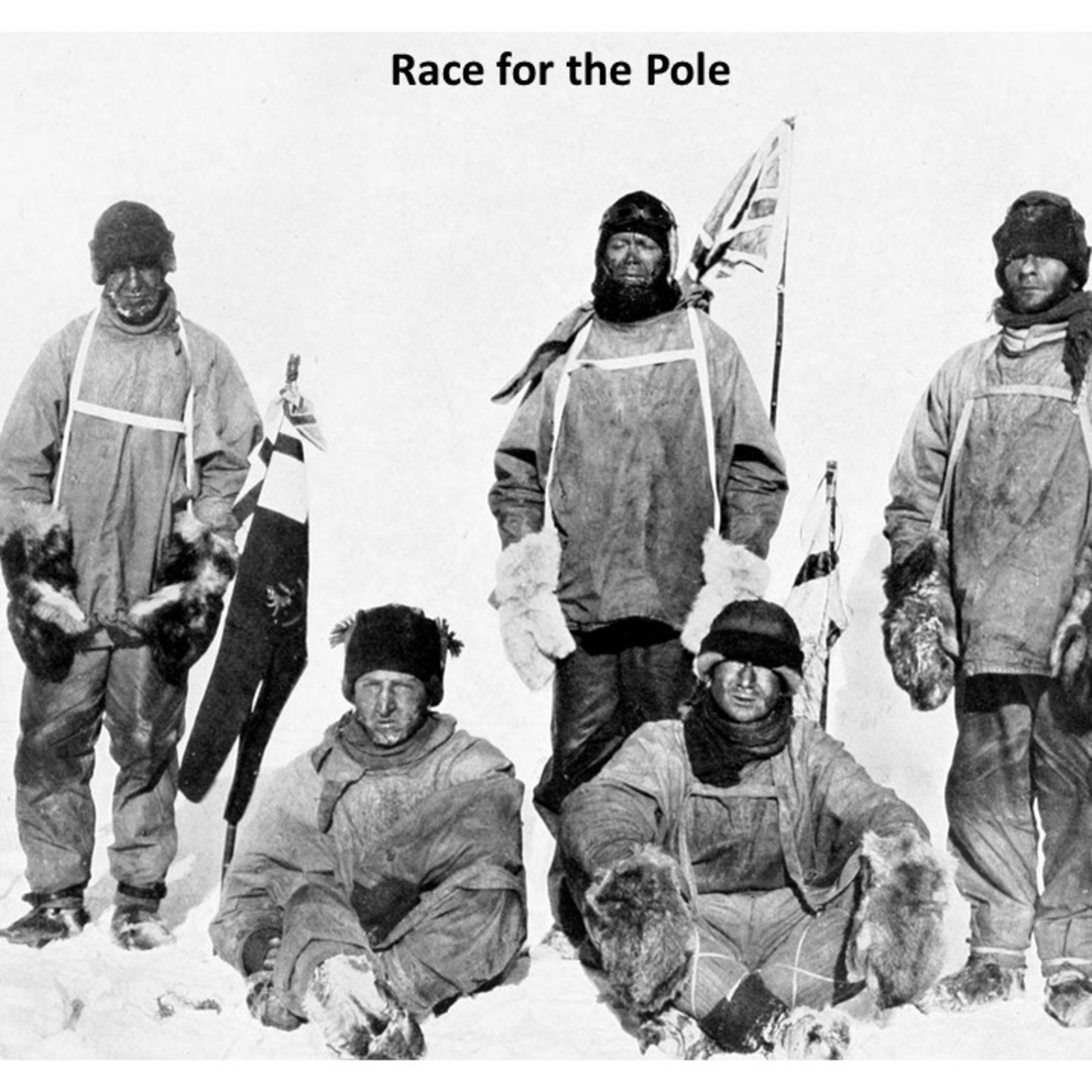 All about AntarcticaPart XIII Race to the PoleAs we enter the heart of the Heroic Age in Antarctica, three men become competitors to be the first person to reach the South Pole: Robert Falcon Scott, Ernest Shackleton, and Roald Amundsen. Scott and Shackleton had a falling out after Scott's Discovery expedition when he blamed Shackleton's illness with scurvy as why they didn't reach the pole at that time. Here I give the history of Shackleton's attempt to reach the pole during his Nimrod expedition in 1907 and when he began emerging as one of the greatest leaders in British history. Then, Scott tries again in his Terra Nov...2023-03-1114 min
All about AntarcticaPart XIII Race to the PoleAs we enter the heart of the Heroic Age in Antarctica, three men become competitors to be the first person to reach the South Pole: Robert Falcon Scott, Ernest Shackleton, and Roald Amundsen. Scott and Shackleton had a falling out after Scott's Discovery expedition when he blamed Shackleton's illness with scurvy as why they didn't reach the pole at that time. Here I give the history of Shackleton's attempt to reach the pole during his Nimrod expedition in 1907 and when he began emerging as one of the greatest leaders in British history. Then, Scott tries again in his Terra Nov...2023-03-1114 min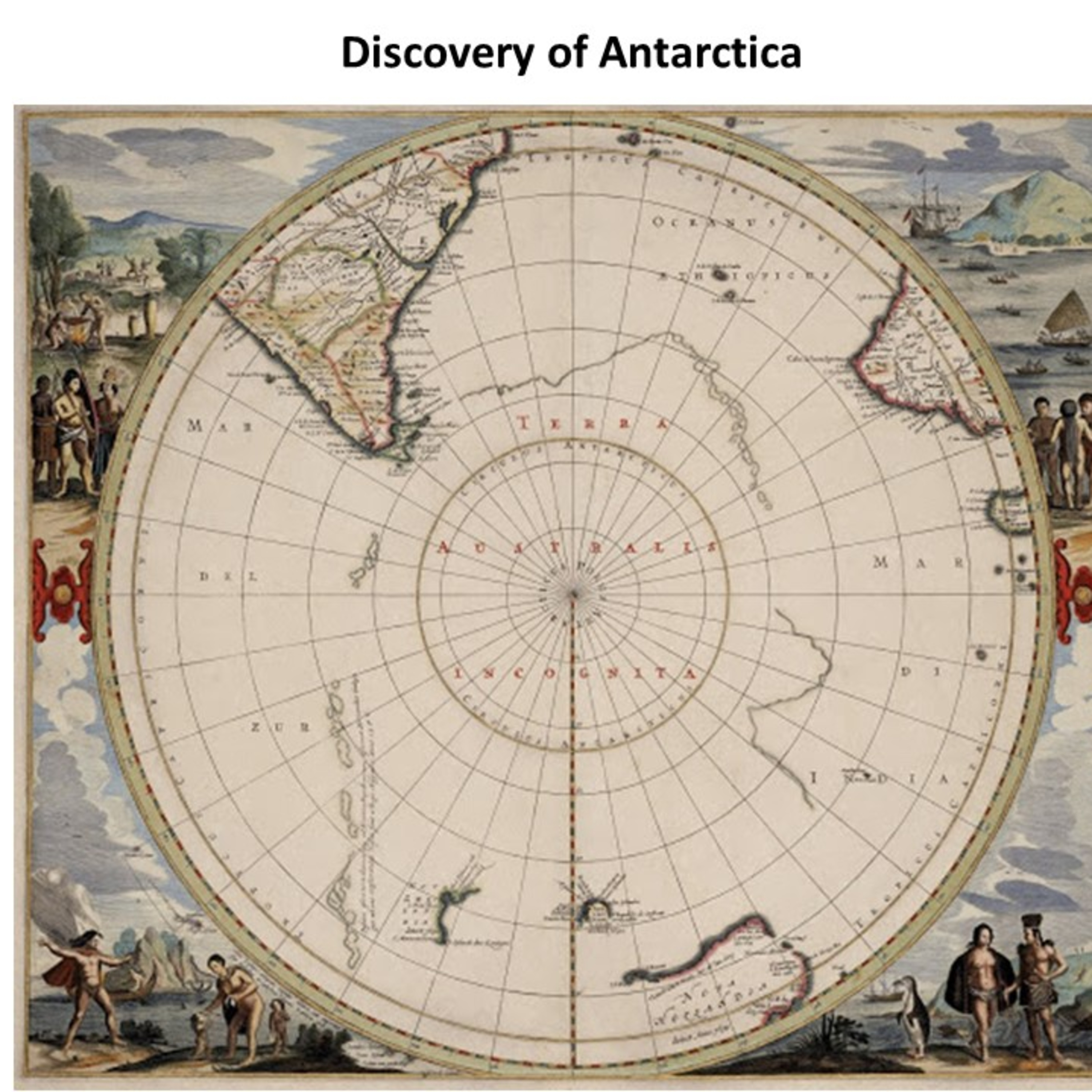 All about AntarcticaPart XI Discovery of AntarcticaAntarctica is a huge continent, over 5 million square miles in size. Yet, it was not until the 1820s that humans first set foot upon it, and not until the first half of the 20th century before it was finally confirmed that it really was one large continent under the ice. Why did it take so long to learn this about Antarctica? In this episode I discuss the earliest explorers who went south in search of a 'lost continent' and the eventual discovery and early scientific expeditions to visit it. Famous navigators including Ferdinand Magellan and Captain James Cook are i...2023-03-1011 min
All about AntarcticaPart XI Discovery of AntarcticaAntarctica is a huge continent, over 5 million square miles in size. Yet, it was not until the 1820s that humans first set foot upon it, and not until the first half of the 20th century before it was finally confirmed that it really was one large continent under the ice. Why did it take so long to learn this about Antarctica? In this episode I discuss the earliest explorers who went south in search of a 'lost continent' and the eventual discovery and early scientific expeditions to visit it. Famous navigators including Ferdinand Magellan and Captain James Cook are i...2023-03-1011 min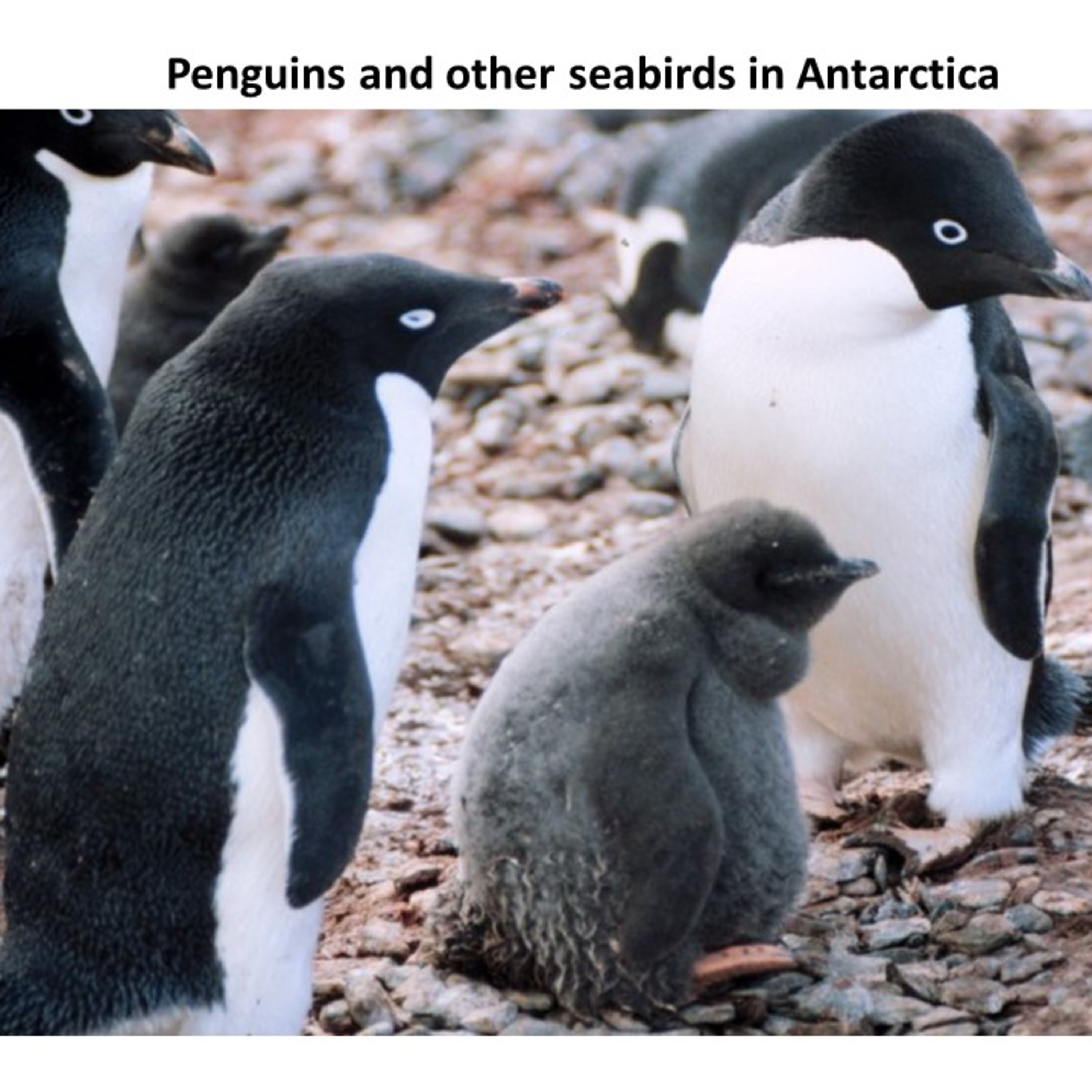 All about AntarcticaPart X Penguins and Other SeabirdsWhen the topic of penguins is raised, most people tend to think only about Antarctica as their habitat. However, of the 19 living species only five actually occur in Antarctica and of those, only two are endemic there. In this episode I describe the breeding cycle and adaptations of these species to the cold Antarctic environment. The cold, dry conditions also preserve tissues in ancient deposits which is the subject of my own research in Antarctica. Some of these tissues date as old as 45,000 or more years, but look and feel modern. Other seabirds reviewed here include the endemic snow...2023-03-1015 min
All about AntarcticaPart X Penguins and Other SeabirdsWhen the topic of penguins is raised, most people tend to think only about Antarctica as their habitat. However, of the 19 living species only five actually occur in Antarctica and of those, only two are endemic there. In this episode I describe the breeding cycle and adaptations of these species to the cold Antarctic environment. The cold, dry conditions also preserve tissues in ancient deposits which is the subject of my own research in Antarctica. Some of these tissues date as old as 45,000 or more years, but look and feel modern. Other seabirds reviewed here include the endemic snow...2023-03-1015 min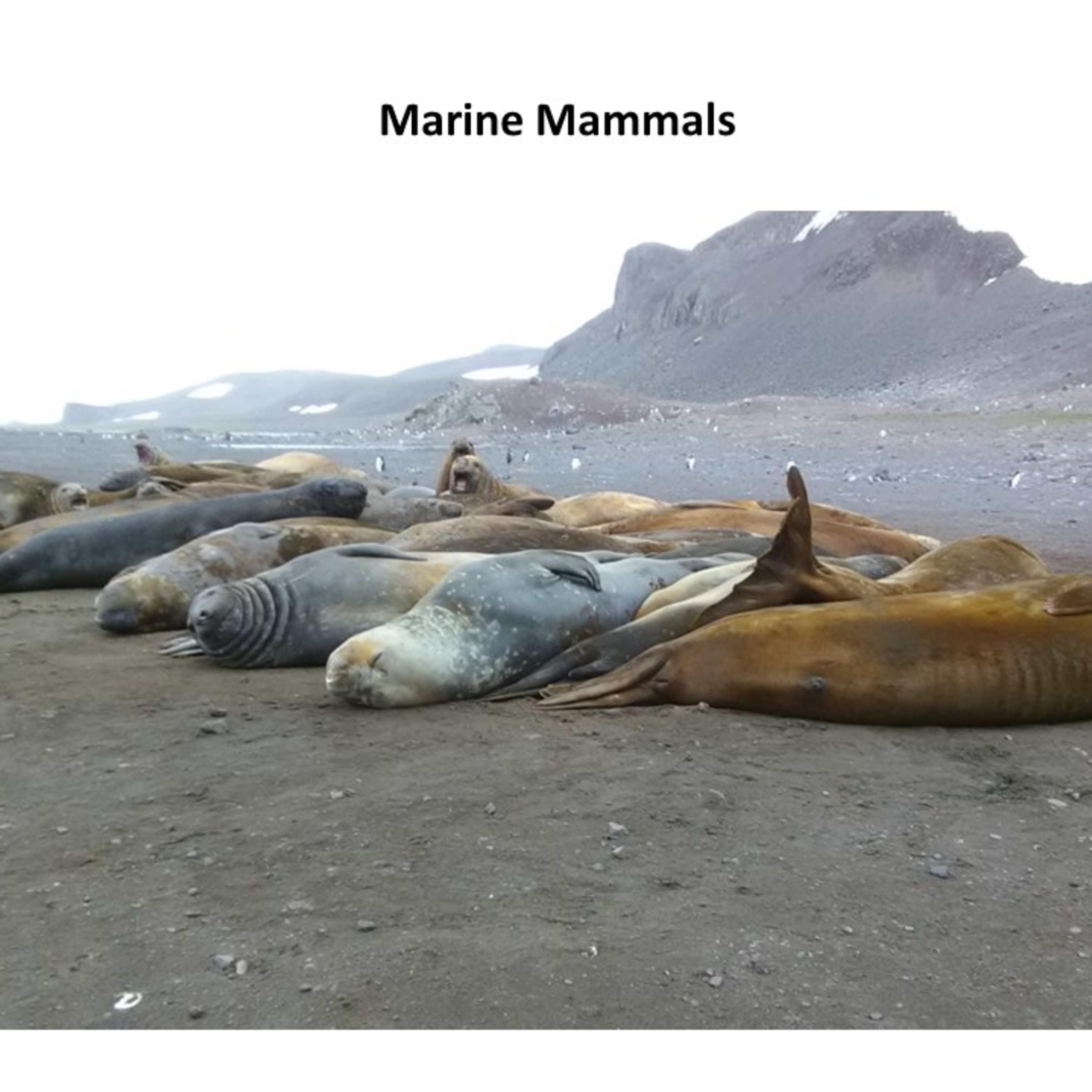 All about AntarcticaPart IX Marine MammalsMarine mammals in Antarctica can be divided into two major groups: the pinnipeds and the cetaceans. Pinnipeds can be further divided into two groups, true seals in the family Phocidae and sea lions in the family Otariidae, while cetaceans are either toothed, or Odontocetes, or baleen whales, the Mysticetes. We have all four of these groups of marine mammals in Antarctica that are briefly described here. Four of the phocid seals are endemic to Antarctica and adapted to breed on sea ice. Cetaceans include four different types of orcas, or killer whales (actually more related to dolphins) that may...2023-03-1013 min
All about AntarcticaPart IX Marine MammalsMarine mammals in Antarctica can be divided into two major groups: the pinnipeds and the cetaceans. Pinnipeds can be further divided into two groups, true seals in the family Phocidae and sea lions in the family Otariidae, while cetaceans are either toothed, or Odontocetes, or baleen whales, the Mysticetes. We have all four of these groups of marine mammals in Antarctica that are briefly described here. Four of the phocid seals are endemic to Antarctica and adapted to breed on sea ice. Cetaceans include four different types of orcas, or killer whales (actually more related to dolphins) that may...2023-03-1013 min All about AntarcticaPart VIII Antarctic LakesAlthough only about 2% of Antarctica is exposed as ice-free land, there are hundreds of lakes found there that vary from freshwater to saline. There are even hundreds more that are below the ice sheets that have been hidden and isolated there for millions of years. In this episode, I review the different types of lakes found in Antarctica and the life within them. These lakes include the most saline lake on earth, Don Juan Pond which is 18x saltier than the ocean, and the most isolated lake in the world, Lake Vostok, a large freshwater lake that is 4 km be...2023-03-1010 min
All about AntarcticaPart VIII Antarctic LakesAlthough only about 2% of Antarctica is exposed as ice-free land, there are hundreds of lakes found there that vary from freshwater to saline. There are even hundreds more that are below the ice sheets that have been hidden and isolated there for millions of years. In this episode, I review the different types of lakes found in Antarctica and the life within them. These lakes include the most saline lake on earth, Don Juan Pond which is 18x saltier than the ocean, and the most isolated lake in the world, Lake Vostok, a large freshwater lake that is 4 km be...2023-03-1010 min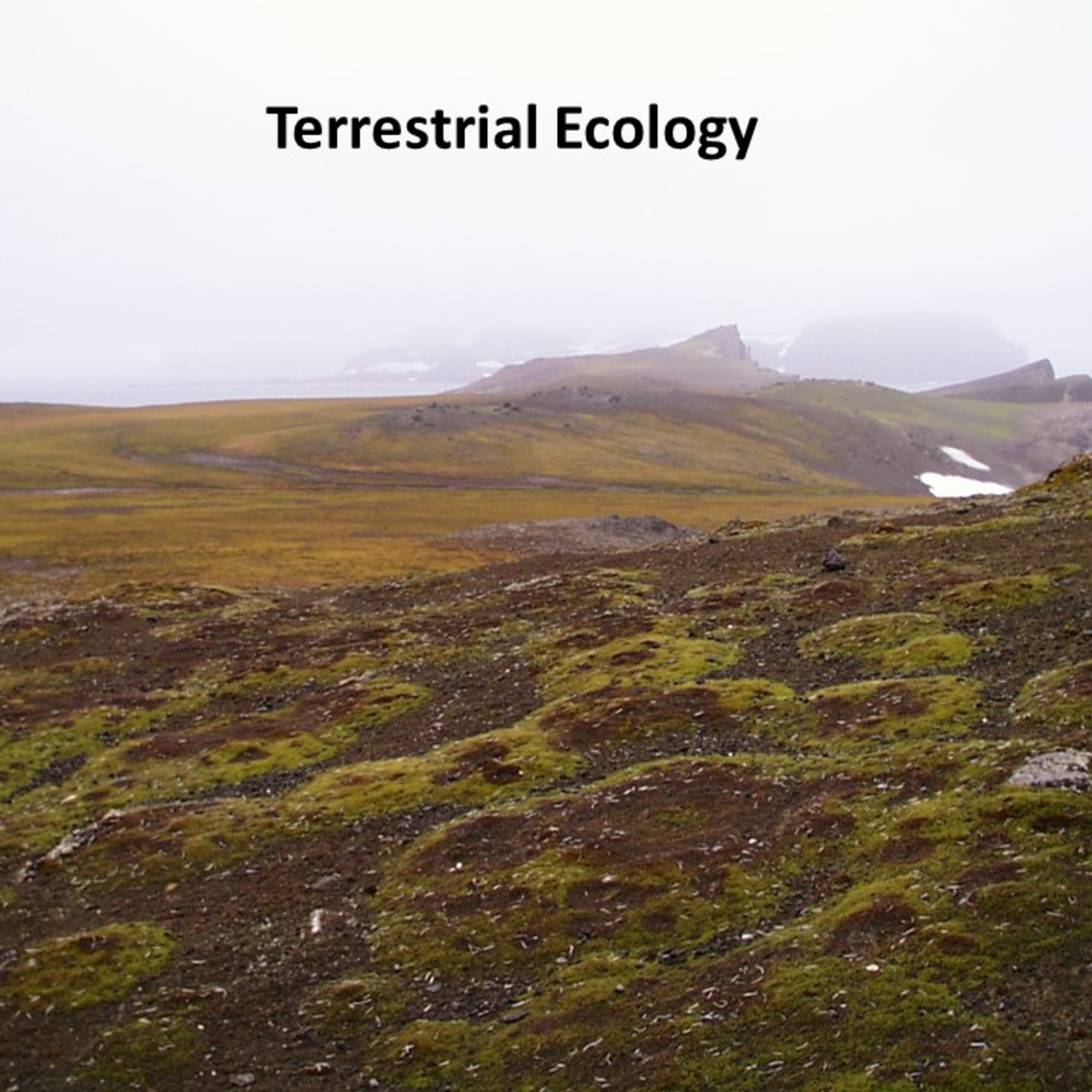 All about AntarcticaPart VII Terrestrial EcologyFully terrestrial life in Antarctica is extremely limited with only two flowering plants and no vertebrates (no polar bears!). Penguins and seals come ashore to breed or molt, but these are marine vertebrates. In this episode, I explore the plant and animal life in terrestrial environments in Antarctica. While limited to ice-free regions, there are hundreds of species of mosses and lichens. Invertebrates are limited to nematodes, springtails, mites and tardigrades that live in soils of different types and structure, including gelisols, or soils so dry they do not freeze as with permafrost, but remain loose. Ornithogenic, or bird-formed...2023-03-1012 min
All about AntarcticaPart VII Terrestrial EcologyFully terrestrial life in Antarctica is extremely limited with only two flowering plants and no vertebrates (no polar bears!). Penguins and seals come ashore to breed or molt, but these are marine vertebrates. In this episode, I explore the plant and animal life in terrestrial environments in Antarctica. While limited to ice-free regions, there are hundreds of species of mosses and lichens. Invertebrates are limited to nematodes, springtails, mites and tardigrades that live in soils of different types and structure, including gelisols, or soils so dry they do not freeze as with permafrost, but remain loose. Ornithogenic, or bird-formed...2023-03-1012 min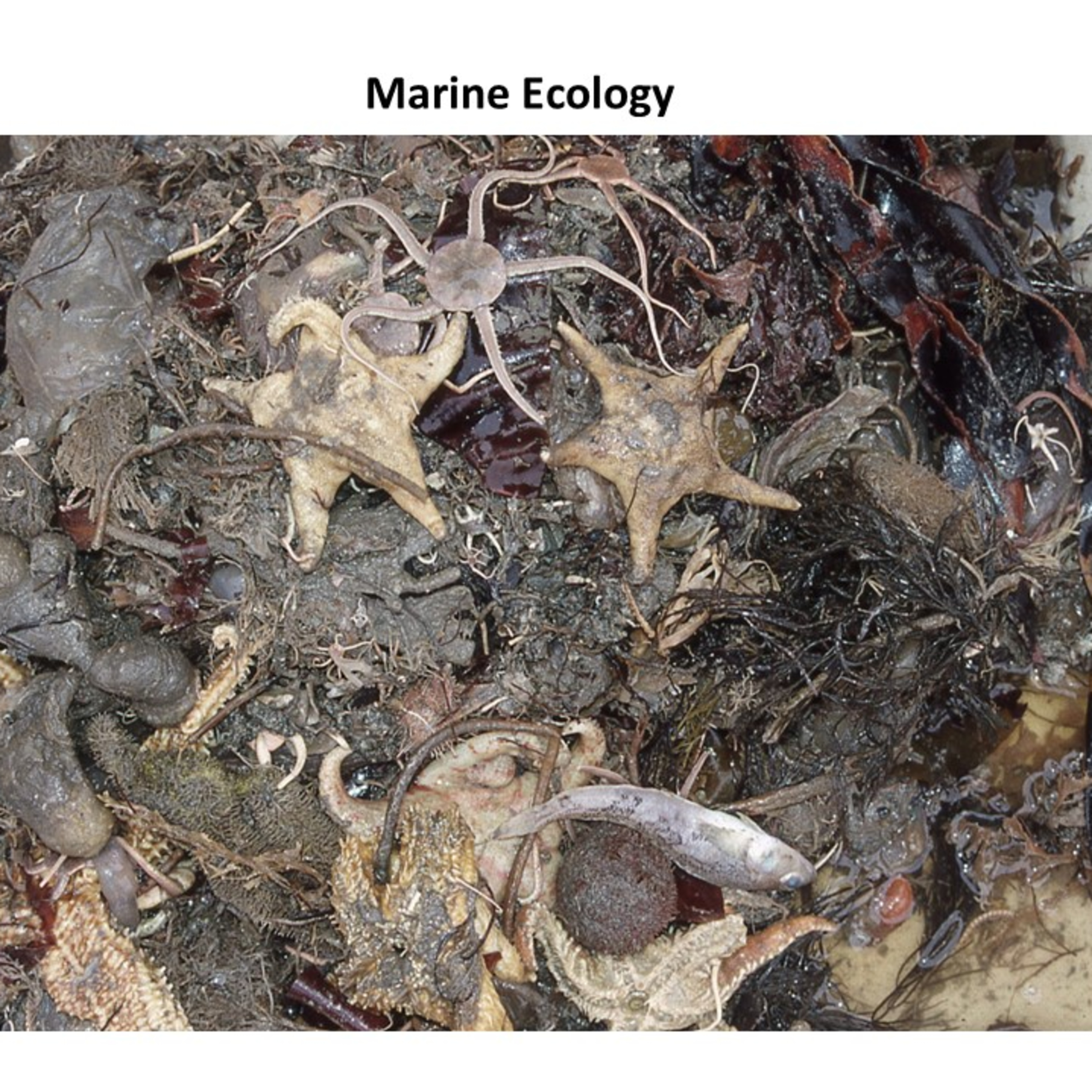 All about AntarcticaPart VI Marine EcologyIn Part IV of this podcast, I described how sea ice forms and traps marine algae that can grow in the ice before it’s released back into the ocean when the ice melts. This process drives marine productivity in Antarctica starting with krill, a small crustacean that is a keystone species there. In this episode, the life cycle of krill is described and why it is so important in the marine food web. The rich diversity of benthic invertebrates also is presented and the current threat to this community by the invasion of king crabs from South America. A...2023-03-1009 min
All about AntarcticaPart VI Marine EcologyIn Part IV of this podcast, I described how sea ice forms and traps marine algae that can grow in the ice before it’s released back into the ocean when the ice melts. This process drives marine productivity in Antarctica starting with krill, a small crustacean that is a keystone species there. In this episode, the life cycle of krill is described and why it is so important in the marine food web. The rich diversity of benthic invertebrates also is presented and the current threat to this community by the invasion of king crabs from South America. A...2023-03-1009 min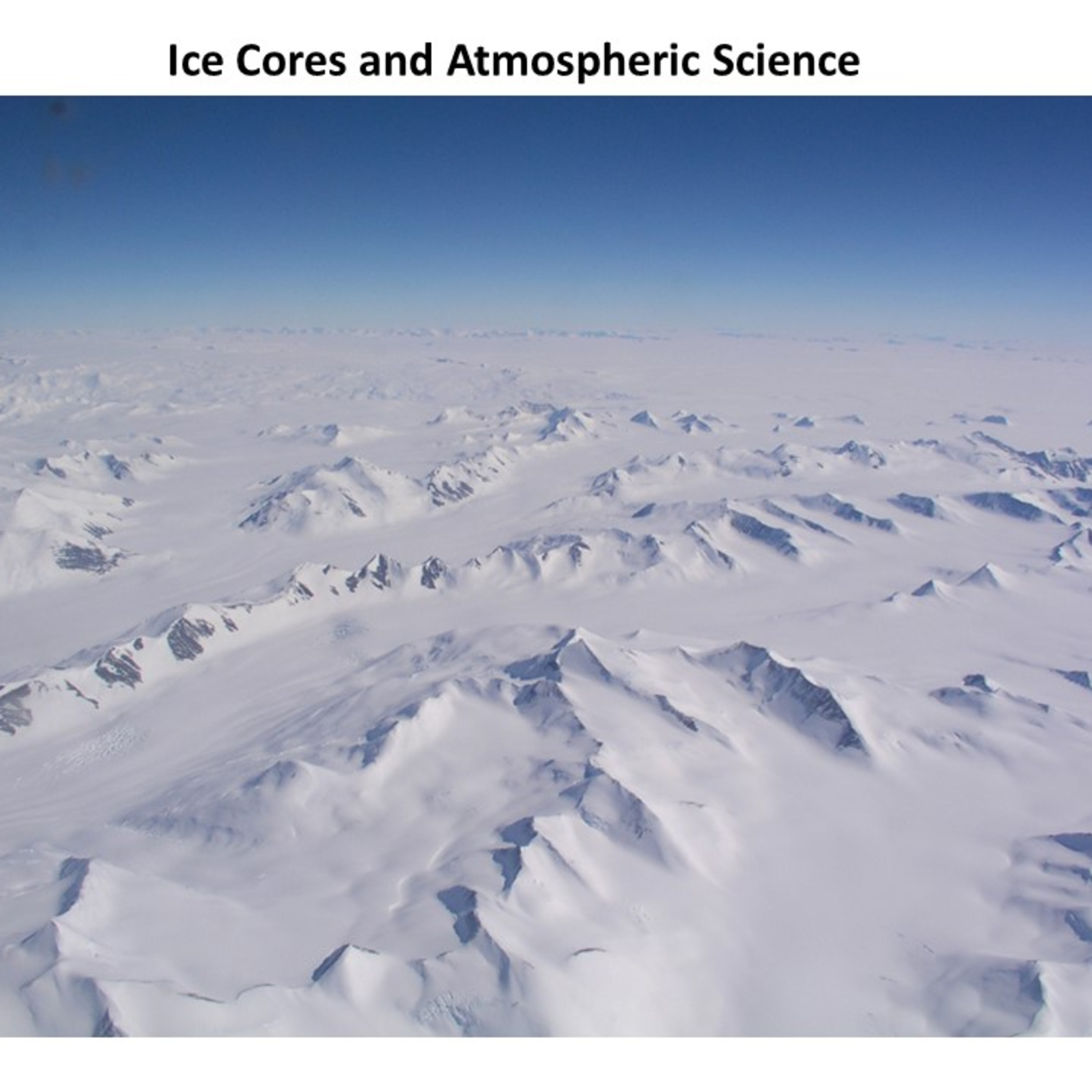 All about AntarcticaPart V Ice Cores and Atmospheric ScienceAlthough the giant ice sheets that cover Antarctica formed by 14 million years ago, constant movement and replacement of this ice means that none of it today is older than about 1 million years. Air bubbles trapped in this ice when it formed provide a record of our atmosphere in the past. In this episode, I describe how ice cores can retrieve important paleoclimatic data on earth's history over the past 800,000 years. This record reveals cycles of climate change and the role of greenhouse gases in determining ice ages and interglacial periods over millennia. The origin and importance of ozone in...2023-03-1011 min
All about AntarcticaPart V Ice Cores and Atmospheric ScienceAlthough the giant ice sheets that cover Antarctica formed by 14 million years ago, constant movement and replacement of this ice means that none of it today is older than about 1 million years. Air bubbles trapped in this ice when it formed provide a record of our atmosphere in the past. In this episode, I describe how ice cores can retrieve important paleoclimatic data on earth's history over the past 800,000 years. This record reveals cycles of climate change and the role of greenhouse gases in determining ice ages and interglacial periods over millennia. The origin and importance of ozone in...2023-03-1011 min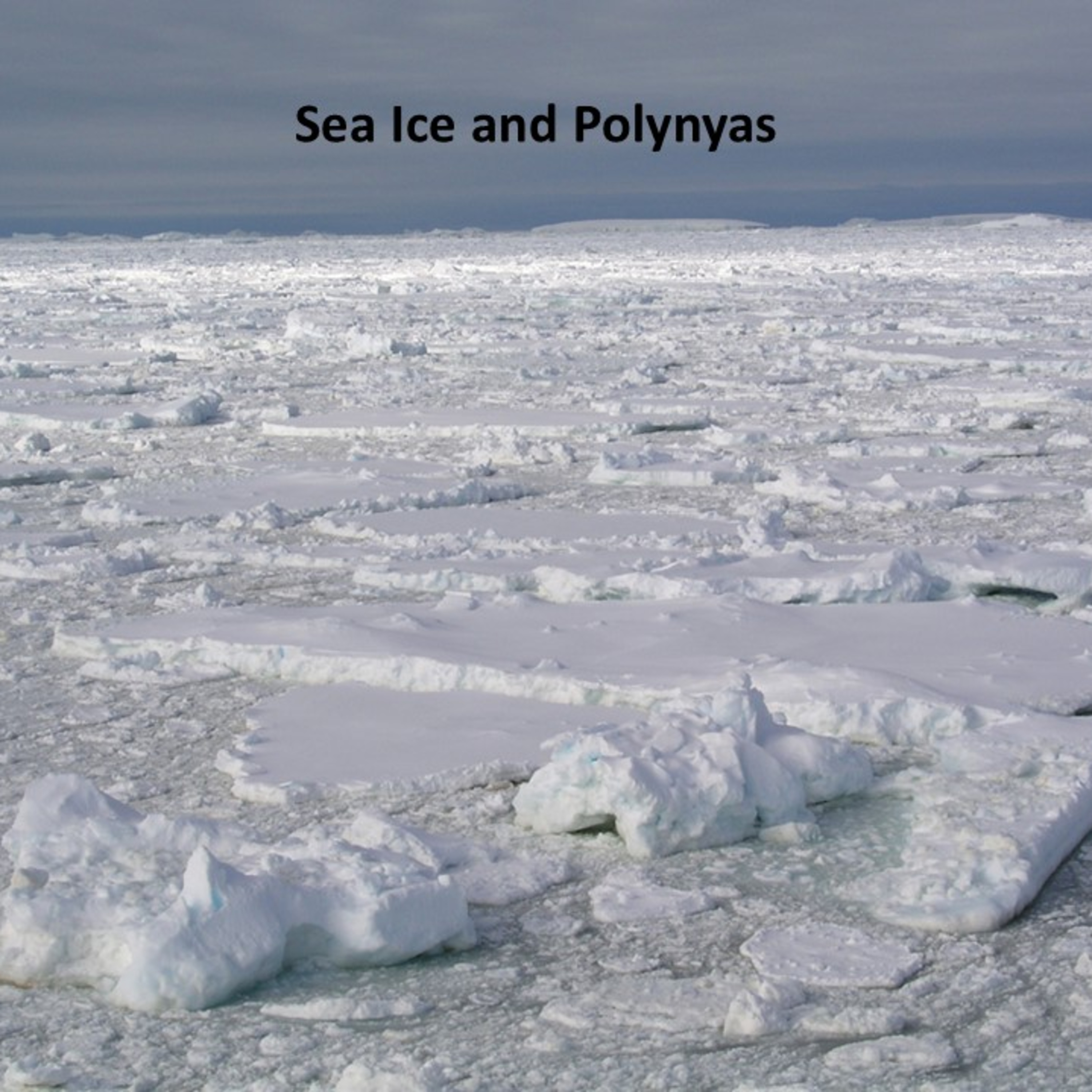 All about AntarcticaPart IV Sea ice and PolynyasSea ice is a major feature of Antarctica and has considerable influence on ocean currents and marine ecology. In this episode I describe how sea ice forms and traps marine algae that stimulates the marine food web when the ice melts. Thus, sea ice provides a direct link between the physical and biological worlds that is important for marine productivity all the way up the food chain to penguins, seals, and whales. Sea ice extent varies each year in Antarctica and also is an important driver for ocean currents and mixing. Polynyas are highly productive areas of open water sur...2023-03-1008 min
All about AntarcticaPart IV Sea ice and PolynyasSea ice is a major feature of Antarctica and has considerable influence on ocean currents and marine ecology. In this episode I describe how sea ice forms and traps marine algae that stimulates the marine food web when the ice melts. Thus, sea ice provides a direct link between the physical and biological worlds that is important for marine productivity all the way up the food chain to penguins, seals, and whales. Sea ice extent varies each year in Antarctica and also is an important driver for ocean currents and mixing. Polynyas are highly productive areas of open water sur...2023-03-1008 min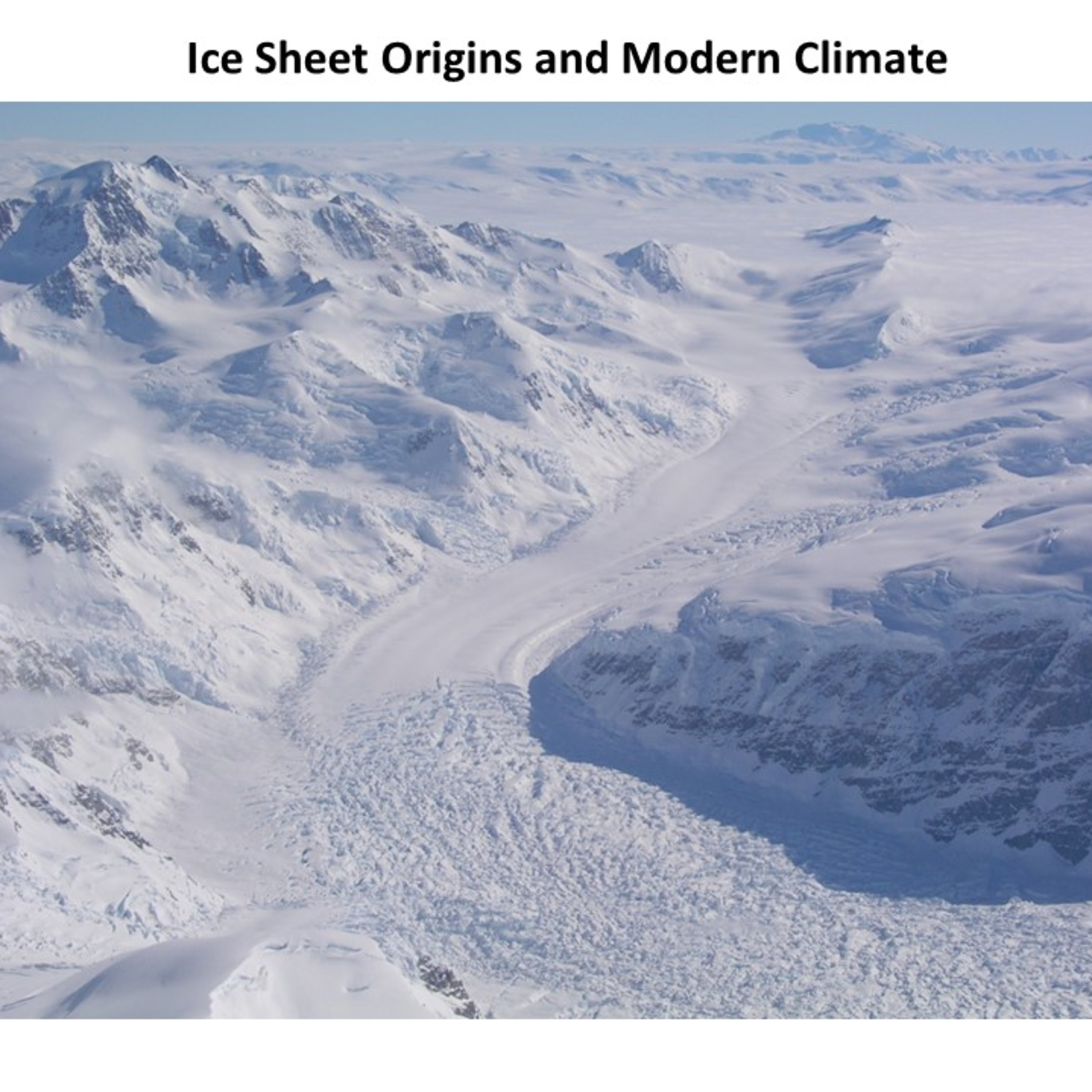 All about AntarcticaPart III Ice Sheet Origins and Modern ClimateHow did the Antarctic continent become covered with an ice sheet that is up to 4 km thick? In this episode I explain how this ice sheet developed and its influence on modern climate there. I also describe the origin of the giant floating ice shelves in Antarctica and how katabatic winds help make this continent the coldest, windiest and most remote place on earth. The isolation of Antarctica with the development of the Antarctic Circumpolar Current that circles the continent also is described.2023-03-1010 min
All about AntarcticaPart III Ice Sheet Origins and Modern ClimateHow did the Antarctic continent become covered with an ice sheet that is up to 4 km thick? In this episode I explain how this ice sheet developed and its influence on modern climate there. I also describe the origin of the giant floating ice shelves in Antarctica and how katabatic winds help make this continent the coldest, windiest and most remote place on earth. The isolation of Antarctica with the development of the Antarctic Circumpolar Current that circles the continent also is described.2023-03-1010 min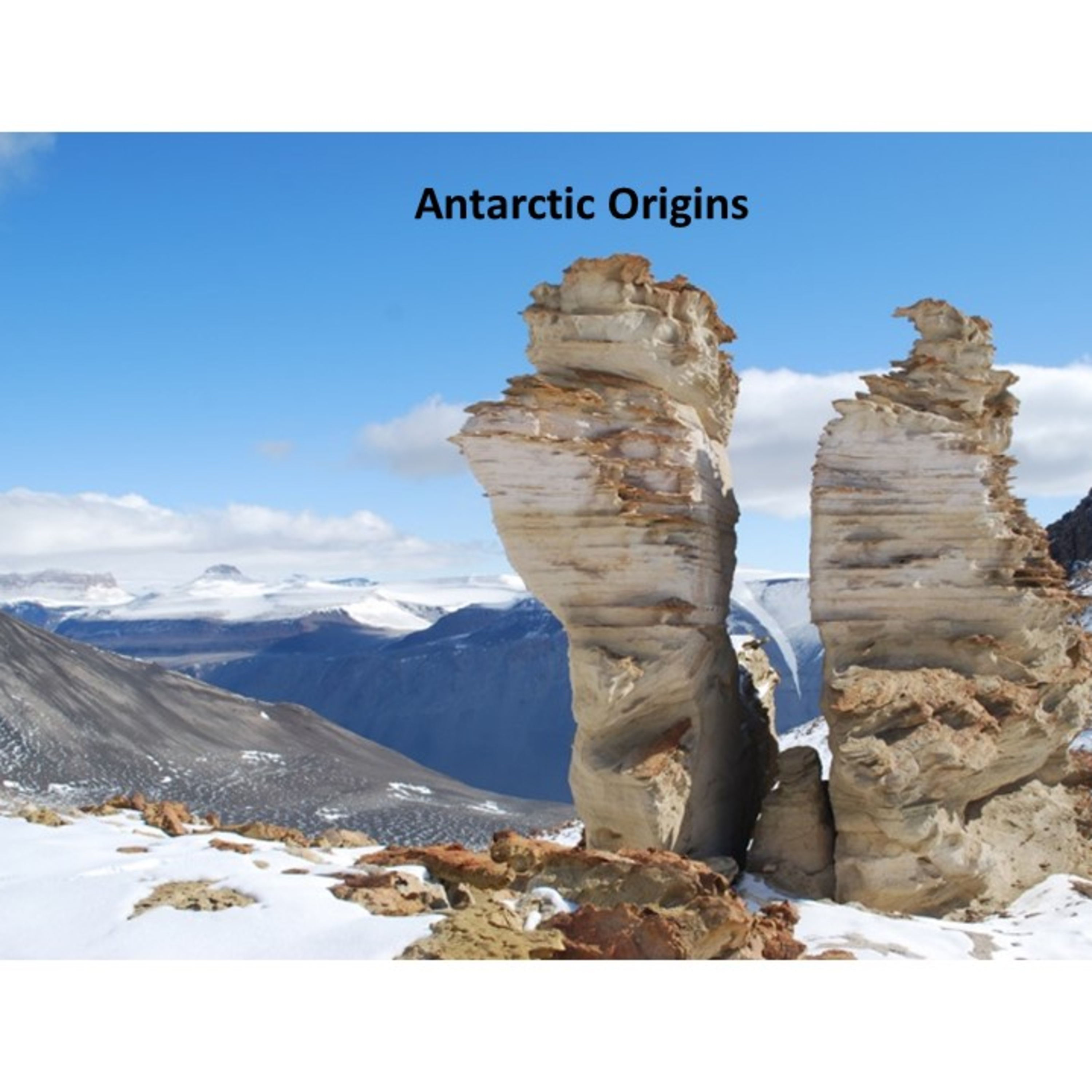 All about AntarcticaPart II Antarctic OriginsIn this episode, I describe the geologic origins of the Antarctic continent and how it changed and developed over millions of years to become the coldest and windiest place on earth that it is today. The concepts of plate tectonics and continental drift are presented and play a key role in shaping the continent and in understanding its rich fossil record that includes ancient forests, dinosaurs, and giant penguins.2023-03-1010 min
All about AntarcticaPart II Antarctic OriginsIn this episode, I describe the geologic origins of the Antarctic continent and how it changed and developed over millions of years to become the coldest and windiest place on earth that it is today. The concepts of plate tectonics and continental drift are presented and play a key role in shaping the continent and in understanding its rich fossil record that includes ancient forests, dinosaurs, and giant penguins.2023-03-1010 min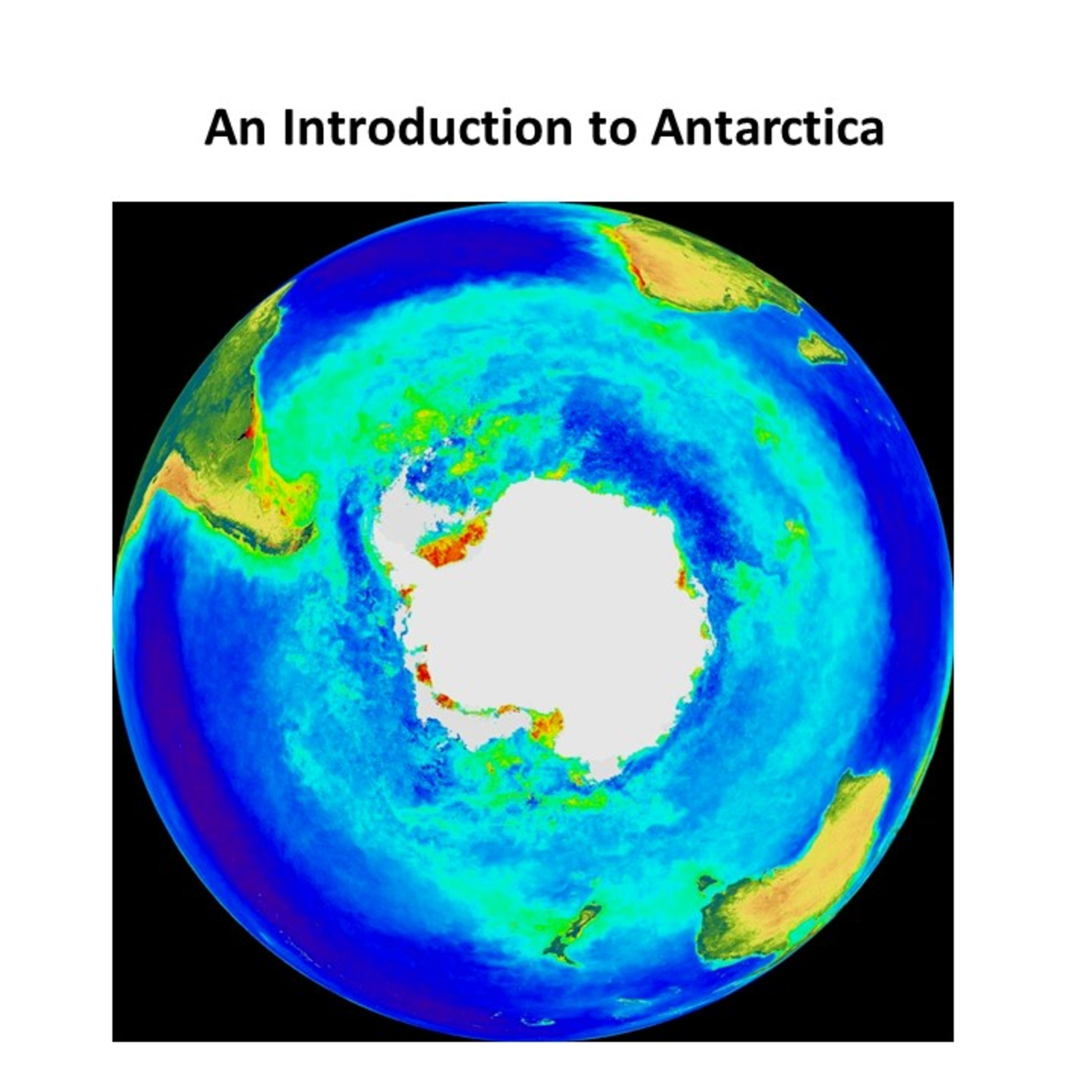 All about AntarcticaPart I Introduction to AntarcticaIn this episode I introduce myself and the research I've been conducting in Antarctica since 1991, then provide a brief introduction to Antarctica with facts and misconceptions about this frozen continent. 2023-03-1010 min
All about AntarcticaPart I Introduction to AntarcticaIn this episode I introduce myself and the research I've been conducting in Antarctica since 1991, then provide a brief introduction to Antarctica with facts and misconceptions about this frozen continent. 2023-03-1010 min Bah Humbug: A Christmas Movie Podcast with Helen O'Hara#10 - How to change the pictureIn this episode of Women Vs Hollywood, Helen O’Hara is joined by actress and founder of Primetime Victoria Emslie, film financier Jasmin Morrison, and Laura Grange, who is Head of Acquisitions at a major broadcaster. Helen asks her guests how things are changing for the better in the film industry, especially in terms of finance, distribution, and diversity on set. They also discuss what we still need to do to make sure that things continue to improve in the future. You can find our host, Helen O’Hara (she/her), on Twitter @HelenLOHara.You c...2021-11-0946 min
Bah Humbug: A Christmas Movie Podcast with Helen O'Hara#10 - How to change the pictureIn this episode of Women Vs Hollywood, Helen O’Hara is joined by actress and founder of Primetime Victoria Emslie, film financier Jasmin Morrison, and Laura Grange, who is Head of Acquisitions at a major broadcaster. Helen asks her guests how things are changing for the better in the film industry, especially in terms of finance, distribution, and diversity on set. They also discuss what we still need to do to make sure that things continue to improve in the future. You can find our host, Helen O’Hara (she/her), on Twitter @HelenLOHara.You c...2021-11-0946 min